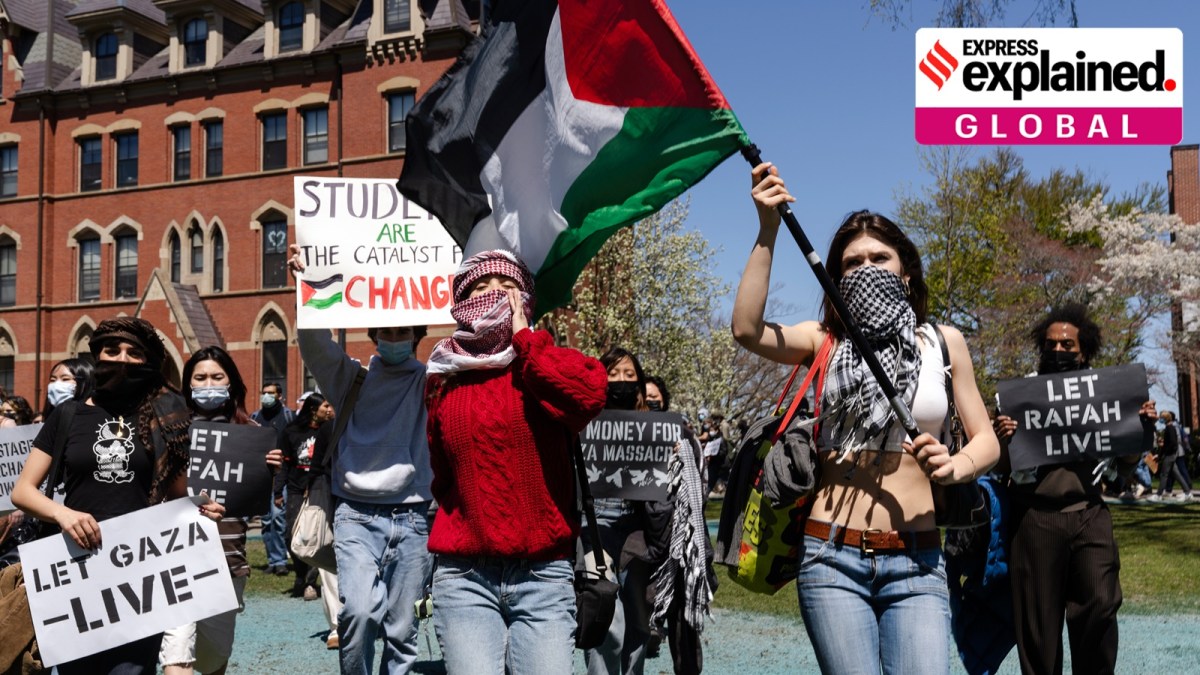Turkish student detained in US: Trump administration’s rationale, students’ concerns
While students and US authorities seemed to be on a collision course even before Trump assumed office in January, his government has adopted a firmer stance on the issue of protesting students.

A video of a Turkish doctoral student being handcuffed by masked officials in Massachusetts, US, has become the latest flashpoint amid foreign-origin students being targeted by the US government over their political views. Immigration officials detained Rumeysa Ozturk, a 30-year-old Turkish student, and took her to another US state.
Responding to a question at a press conference on March 28, US Secretary of State Marco Rubio said, “We are not going to be importing activists into the United States. They’re here to study. They’re here to go to class. They’re not here to lead activist movements that are disruptive and undermine… our universities. I think it’s lunacy to continue to allow that.”
What is the rationale for the US deporting students?
It’s part of the Trump administration’s crackdown on students who have protested against Israeli military action in the Gaza Strip following the Hamas attack on Israel on October 7, 2023. Charges such as disruption of academic spaces and anti-Semitic chants being made at protest rallies have been levelled at them, denied by many of the protestors.
While students and US authorities (both the government and college administrators) seemed to be on a collision course even before Trump assumed office in January, his government has adopted a firmer stance.
According to The New York Times, nine people have been pursued and detained by federal officers so far, including green card-holders or permanent residents and those on student visas. There are multiple routes to obtaining green cards, such as through a job requiring certain specialisation or through family in the US. The Office of Homeland Security Statistics estimated 12.8 million lawful permanent residents as of 2024.
The reasons for deportations have varied in terms of scale of involvement. US federal prosecutors alleged that they deported Alawieh after discovering “sympathetic photos and videos” of prominent figures of the Iran-backed group Hezbollah on her phone. She was at Brown Medicine, which sponsored her H-1B visa in 2024. The visa allows employers to hire foreign workers for positions that require specialised knowledge.
Srinivasan, meanwhile, spoke about their limited participation, such as liking social media posts and signing petitions “that challenged academic repression and which said that the violence (in the Middle East) needs to stop.” US officials have not cited specific proof of Srinivasan’s involvement.
What are the concerns here?
Rubio said the Trump administration has revoked the visas of at least 300 people. The NYT reported, “The Trump administration has justified the actions by citing a rarely used provision of the Immigration and Nationality Act of 1952, which grants the secretary of state broad authority to expel foreigners deemed to pose “potentially serious adverse foreign policy consequences” for the United States.”
In a country which has had few restrictions on public protests and guaranteed free speech under the First Amendment of the Constitution, the suddenly real threat of restrictions and deportations now looms large.
On Thursday evening, a few hundred people turned out in Somerville, Massachusetts, to rally for Ozturk’s release and the greater Palestinian cause. Her lawyer filed a petition seeking her release, and District Judge Indira Talwani ordered that Ozturk not be moved outside the District of Massachusetts without 48 hours advance notice.